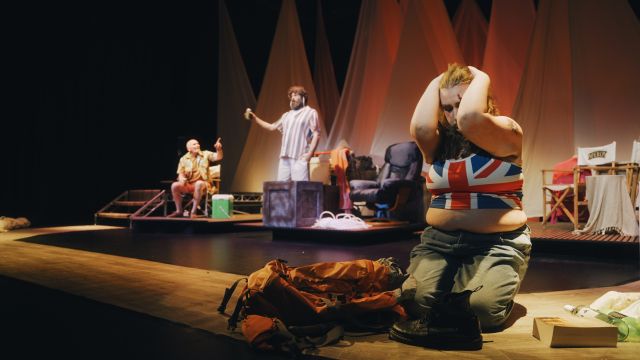Rising Water
Since arriving in Launceston a year ago, I’ve been continually impressed, not just by the production standards across the board, but also by the consistent ‘difficulty factor’ of the texts being tackled. This can make writing reviews difficult also, so please bear with me.
It’s a peculiar setting for starters. Three people, living side-by-side in three boats, located at a Western Australian marina. What appears at first to be a comical, carefree existence is soon inescapably contaminated by a litany of taboo themes and societal ills, as each central character’s deepest secrets are revealed.
All this action takes place in the space of one day - Australia Day, no less.
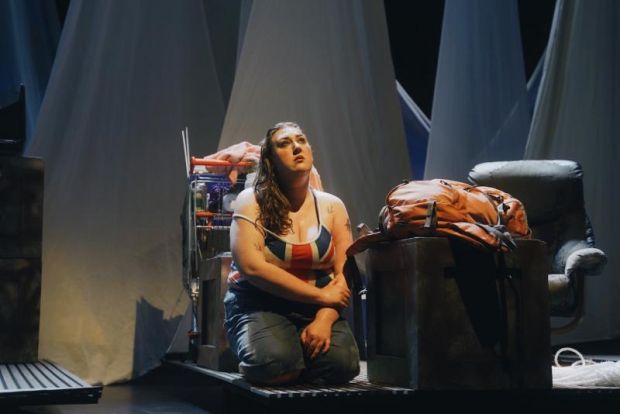
As narrative devices go, this one is a humdinger. (Way to divide your audience, Tim!) At least half of those present were squirming in their seats from the beginning while everyone else laughed it up at the sheer “Larrikin” of it all, albeit laced with intrinsic, (far too normalised) bigoted Aussie banter.
And while Winton’s way with words can be deceptively lyrical, there’s no disguising the darkest parts of human nature woven into each revelation - featuring heavily is the baked-in misogyny evident in so-called civilised society generally, but also that which has a uniquely Australian flavour.
A difficult play, impressively tackled (no pun intended) by Three River Theatre.
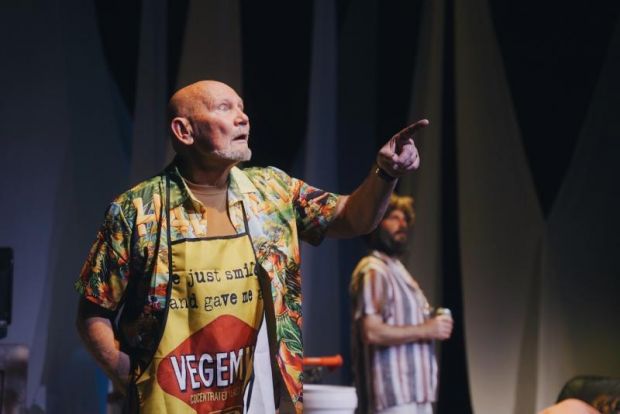
A versatile, static set sits neatly in the foreground amid a backdrop of giant sheets (sails) bringing home the pervading metaphor of ‘procrastination’. Our hapless characters never do leave their moorings, even though prevailing winds lay perennially in wait to carry them away.
The set is also dressed with some great props; bathed in an oh so familiar soundscape and every scene is punctuated by sharp lighting cues. All peripherals combine for a fully immersive theatrical experience.
Particularly strong performances by James Patrick Reed as ‘Col’ (the comedy relief character) and Amanda Dawes as the more serious and protective ‘Jackie’ provided solid support for the central character Baxter - portrayed with restrained, yet palpable, rising distress by Leigh Oswin. It’s Baxter’s BIG secret that is hinted at and picked apart throughout.
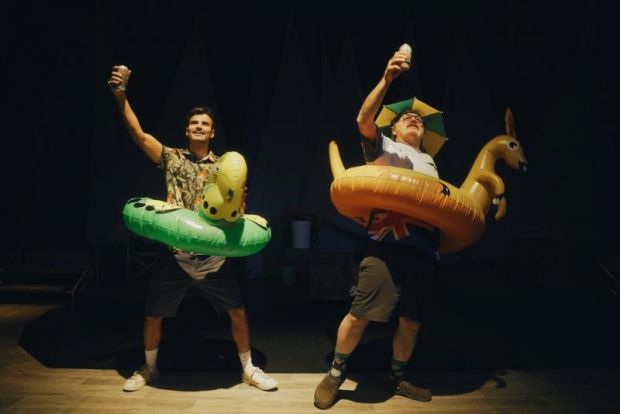
The unlikely catalyst to the most brutal conversations arrives in the form of a totally smashed, brash and bratty UK backpacker named ‘Dee’, a deceptively-layered role played with unabashed commitment by Olivia Brodinski.
Dee’s mere presence brings out the worst in the male characters, steadily emboldening an increasingly intoxicated Baxter to leap into the abyss of radical honesty.
His revelations at this low point elicited a very audible (but reassuring) gasp from the women sitting behind me. I say reassuring, because our more self-aware younger generations are refreshingly confronted by the basest instincts of seemingly mature, supposedly ‘trustworthy’ men (I could dive deeper into this concept but it would contain too many spoilers).
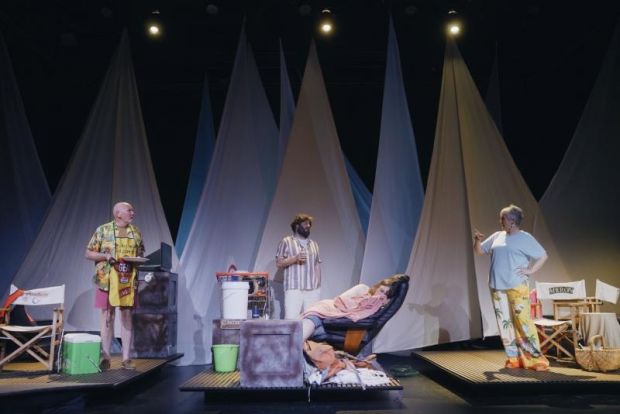
To be really honest, my overall view of the text itself was that it harboured too many peripheral distractions when the meat and bones of the main story should have been enough. But to Winton’s credit, I haven’t stopped thinking about how these distractions (mainly to do with Australia Day) factored into the commentary. Kudos to Mike Brooke and Nelson Clay, whose intermittent appearances, deftly provided those ‘distractions’ and well done also to youth actor Joss Cette, whose delightful stage presence provided an unexpectedly ethereal dimension.
Rose Cooper
Images: Luca Schild Photography.
Subscribe to our E-Newsletter, buy our latest print edition or find a Performing Arts book at Book Nook.

